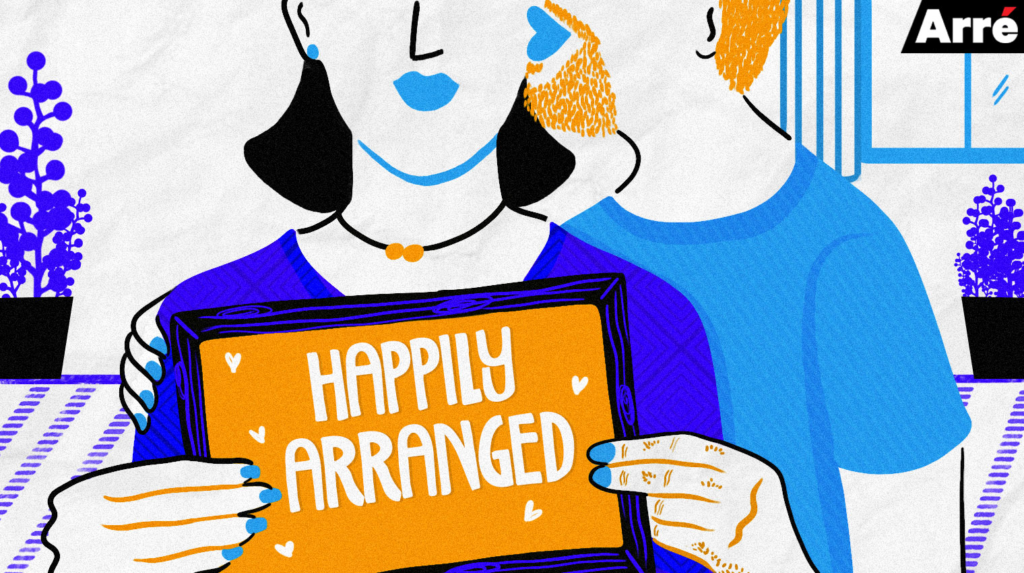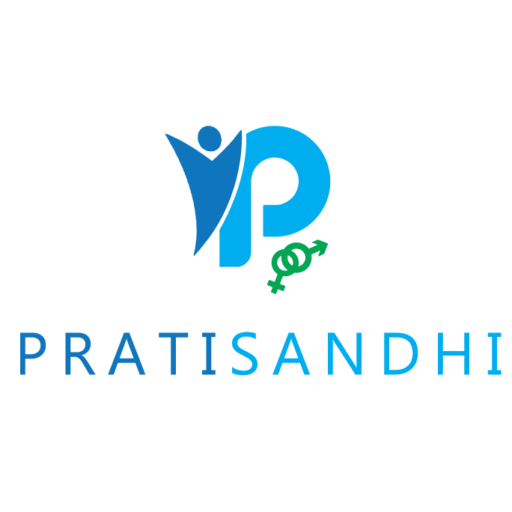Modern Matchmaking
Written by – Tanisha Saxena
Tanisha Saxena thinks one thing that has been on everyone’s mind ever since Indian Matchmaking, a Netflix show based on the arranged marriage scenario in India, has released is whether it is an accurate portrayal of the industry. It has also received severe criticism for perpetration of misogynistic and regressive mindsets.
The eight episodes feature elite Indian matchmaker Sima Taparia as she goes about trying to find suitable matches for her affluent clients in India and the US.
While the show surely highlights the ills of Indian society, Modern Matchmaking isn’t all of what it’s actually been shown like.
A Snippet of Modern Matchmaking
Samiksha Chopra,48, and Sonali Kapur,36 began the Perfect Match, a Delhi-based exclusive matchmaking service in August 2019.
On asking them what led them to start, Samiksha says “Divine intervention- I woke up one day and just had the feeling of wanting to launch a matchmaking service, I called Sonali who agreed with my idea and we’ve never looked back since.”
What sets them apart from the countless matrimonial sites is their close-knit community of
clients. “We only match for people we know personally or through friends and mutuals. Thus, we have a better idea on the background, education, family values and can suggest suitable matches. What matters to us most is the compatibility- of not only the bride and groom but also their folks since marriages in India are a celebration of 2 families coming together.
They have 2 astrologers on roll for kundali matching, an activity they tend to engage in only if clients demand the need. “We usually encourage the parents to get the kundalis matched themselves. If asked, we primarily treat it as a science just to get a better understanding of the compatibility.”
Within a year they have had 4 rishtas with 30-40 clients currently in the pipeline. For the founders, this service is from the belief that helping two families and people come together would give them blessings.
Saurabh Goswami, 36, founder of the Ultra Rich Match, an international matchmaking agency with 280 successful couples, believes
“A modern arranged marriage is an option for those individuals who respect their parent’s preferences, but also are not ready to compromise on their own set of requirements.”
What they do differently is not limiting their work to a simple biodata exchange. They arrange meetings, share feedback, exchange references from both sides and bring maximum transparency and clarity to the complete process. They also personally visit all clients for verification.
“Contrary to the recent portrayal of matchmakers (were approached for this series but declined due to our company’s confidentiality policy), we take special care to consider the requirements of both parents and the candidate. A matchmaker is literally the only link between the prospective couple. It is thus a huge responsibility on us to correctly portray both sides and convey their requirements without prejudice.” says Goswami.

Are Millennials Open To Arranged Marriages?
A 2013 IPSOS survey found that 74 percent of young Indians (18-35 years old) prefer an arranged marriage over a free-choice one. However, the trends might be shifting. Recent surveys indicate lesser millennials and post millennials wish for getting into an arranged marriage.
Nearly four of ten millennials who wished to get married said they were fine with an arranged marriage. Only three of ten post-millennials said the same.
It is important to note that the share of respondents expressing their yearning for a ‘love marriage’ is far greater than the actual share of such matrimonies in which people choose their own partners. Most marriages even in urban Indian families are still arranged.
There is surely more openness to the idea of arranged marriages. The major driver can be more flexibility in modern matchmaking methods as compared to traditional ways.

A Personal Insight into Modern Arranged Marriages
Shalini Tripathi, a blogger happily married shares her views on this concept-
“I had always been open to the idea of an arranged marriage because of the successful arranged marriage relationships I had witnessed growing up, starting from my parents. They didn’t even meet until they were brought to the mandap, and they’ve created a beautiful life together.”
Tripathi was vocal in terms of her expectations and her family was on the same page. They found suitable matches together keeping in mind family values and dedication in a holistic sense. Her dad introduced her to Rohan after vetting him himself and with her consent.The two clicked and got engaged within 2 months.
“Rohan even moved from Seattle for me. He broke a lot of norms and made some significant sacrifices for me along the way, which is fairly uncommon in the South Asian culture that I have grown up witnessing and being part of.”
On her views regarding the show she says “I wish it illustrated the beautiful side to arranged marriages by highlighting couples that have been going strong for decades, like my parents! There is nothing wrong with highlighting the wrongs of a popular concept if you’re doing it to shed light on the topic as long as you’re not affirming the harmful stance — unfortunately, that’s what they did. Women were constantly berated and told to compromise to find a life partner. They endorsed Sima Taparia’s matchmaking business by belittling the characters and portraying them in a negative light.”

Anjali Nair, a US- based marketing specialist and lifestyle blogger opines-
“Even though it does not sound as cool, arranged marriage matches come out of common interests and backgrounds which help as an icebreaker. Also, the fact that the families are involved in helping find the ‘right person’ instills confidence to make the right decision.
One reason to give this marriage system a try was my parents – they know me pretty well and would take the ‘overwhelming’ part of ‘rishta scouting’ from my shoulders.
Sidharth and I met through Kerala Matrimony, a subset of Bharat Matrimony. Our parents handled our profiles and got us matched! We started with a phone call which continued to whatsapp conversations followed by an in-person meeting with our relatives. Neither of us believed we would find our life partners through a modern arranged marriage. Once our families got us connected, it was completely up to us to take it forward.”
“The best part about modern arranged marriages is the decision to go ahead and make things official entirely depends on the couple and there is no pressure to say ‘yes’ or ‘no’.”

However, the arranged marriage scenario is not always so rosy.
Faiza Fathima Khan describes her unsavory experience-
“Honestly, I think the only thing that opened me up to arranged marriage was coming out of a toxic relationship. I was in a mentally abusive relationship for a while and had given up on any form or hope of ‘love’. I had even lost the confidence that I could make any sound decisions for myself. So, when my parents were putting the whole ‘shaadi jaldi karlo, umar ho jayegi’ pressure, I told them they can decide who I get married to. That is when my mom made a matrimonial profile in possibly every website there is.
Coming to that, these sites are an actual virtual hell.
One gets to see the deep rooted unnecessary ‘traditions’ that are still forced upon which can hamper self-confidence. Random strangers get to reject you based on how you ‘look’ -We need someone who is fairer, taller and slimmer.
It was an overall pretty bad experience until I finally found my now husband. I’ve had people asking me ‘why did you go for arranged marriage, vo bhi iss zamane mei?
‘People who want an educated daughter-in-law just to boast about it.
Hamara beta accha kamata hai already,
there really isn’t any need for her to earn’.

Are Arranged Marriages Worth It?
Arranged marriages are like a gamble. One never fully knows what they are getting themselves into. However, they can be blissful and more people should be open to the idea and not dismiss it the first chance they get.
Even love marriages can go out of order a few years down the lane. It really depends more on the couple and how they work through differences and not as much on the way they marry. A marriage is a decision for life and every person is entitled to their choice. It is incorrect to berate a person for having a clear idea of their life partner. Compromise is essential in any relationship, but it cannot be forced.
There is however centuries worth of stigma to get rid of before arranged marriages become a widely accepted notion across the younger Indian generation. If two individuals are put in a planned setting to explore if they would work as a couple and are given the freedom to make that decision on their own, those are the kind of arranged marriages we stand for.
Author

